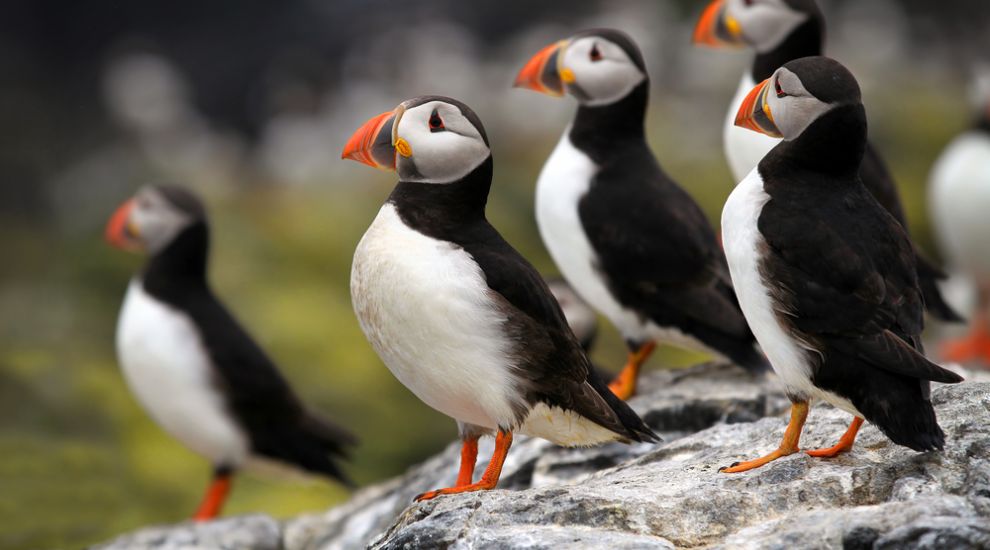

A new list has placed puffins as “at risk of extinction” and bird expert Mike Stentiford says it will take a miracle to save the declining Jersey population.
This morning the International Union for Conservation of Nature revealed that the much-loved colourful birds were at risk of dying out completely.
And Mr Stentiford OBE said that although a project to save the local population of two or three birds remaining at Plémont was going to happen, he wasn’t holding out too much hope.
"It’s safe to say I think that unless there’s a big miracle, we’re not going to save the species here in Jersey,” he said.
"There were only two or three seen this summer and that’s just not sustainable.
"They have been in Jersey since the late 1800’s, we had about 400 pairs, that must have been quite a sight but having said that people used to go and take the eggs, not just puffin eggs but seabirds eggs.
“The numbers really started to decrease between 1914 and 1918, nobody really knows why, something happened, maybe the disturbance of people taking eggs during breeding time.”
The report out this morning said that Jersey was not the only place to see a dramatic drop in puffin numbers.
The number of breeding pairs in the Shetlands has halved in the last 30 years, rainfall on the Farne Islands cut the number of chicks in half and colonies in Scandinavia have also been hit.
Although there are still more than 200 birds on Burou, a small island of Alderney, the fact that they only come ashore to breed and spend most of their lives at sea means they can’t be bred in captivity.
Mr Stentiford said that the restoration of Plémont had an outside chance of helping to stem the flow.
He said: “"It is a bit of a long shot, Plémont is being reclaimed as a natural habitat, one of the problems they had when the holiday home was there was an infestation of rats and they could have had an impact on the chicks, the eggs, we don’t really know that for sure, there was an eradication of the rats and all we need is ten or 12 puffins to come back to successfully breed because of the restoration of the headland.
"It’s just one of the species we are trying to reinstate at Plémont – it's a big challenge – but somebody has got to try."
Comments
Comments on this story express the views of the commentator only, not Bailiwick Publishing. We are unable to guarantee the accuracy of any of those comments.